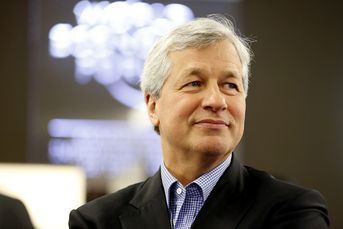Gen Z will need help – are you ready?

The mood and savings habits of Gen Z suggest a huge opportunity on the horizon.
Retirement used to be a byword for slowing down, relaxing, spending time with grandkids, or enjoying the fruits of decades of labor: an expected later-life reward for your contribution to society.
The baby boomers, however, may be the last cohort to enjoy such a relatively simple final act. The world has changed, and Gen Z sees a very different world ahead. Even factoring in the anxiety that every generation has felt about the future, young people’s outlook seems particularly bleak.
A study two years ago by McKinsey & Co. revealed that 23 percent of Gen Zers don’t expect to ever retire. Factors include a perceived tough job market and lack of good pay, the student debt burden (although Gen X and millennials are saddled with more), mental health issues that impact the ability to work, and the lack of opportunities for homeownership.
But this grim outlook appears to have had a positive impact on savings. In 2021, Vanguard found that 62 percent of Gen Zers participated in their employer-sponsored retirement plans – the largest increase of any generation since the early 2000s.
Fast-forward to the end of 2023, and a retirement study by the Transamerica Center for Retirement Studies showed Gen Zers started saving at 19, earlier than millennials and Gen Xers, contribute a median 20 percent of their annual pay to retirement plans, and have a median of $29,000 in their retirement accounts. The day to day is a grind, clearly, but the future may not be as depressing as stressed-out Gen Zers think.
That said, as this generation ages, their financial picture is unlikely to get any less complicated. The US population is, on average, living longer, so people’s savings must go farther or they have to work longer. Folks change jobs more often, posing more 401(k) rollover questions. And as our new column Dear Gabby highlights, gray divorce rates have surged. For Americans over 55, the rate has doubled, and for those over 65, it’s tripled. Mainers, incidentally, were the most keen to abandon their marriage vows in 2023.
So, the broad picture for Gen Z is this: they are stressed about future prospects and their health, and their financial plan will get more complicated as they age. To combat this, they’re more savings-conscious than previous generations.
Unsurprisingly, a recent T. Rowe Price survey reports that those more than five years away from retirement age are much less likely to pay for financial advice. But the mood and savings habits of Gen Z suggest a huge opportunity on the horizon when millions will want or need help. Those advisors who work out how best to connect with this generation and, with skill and empathy, guide them toward a retirement of comfort, fulfilment, and, importantly, hope, will be the successful advisors of the future.
First Watch, Federal Signal are smart small-cap picks, says Goldman manager
Learn more about reprints and licensing for this article.







